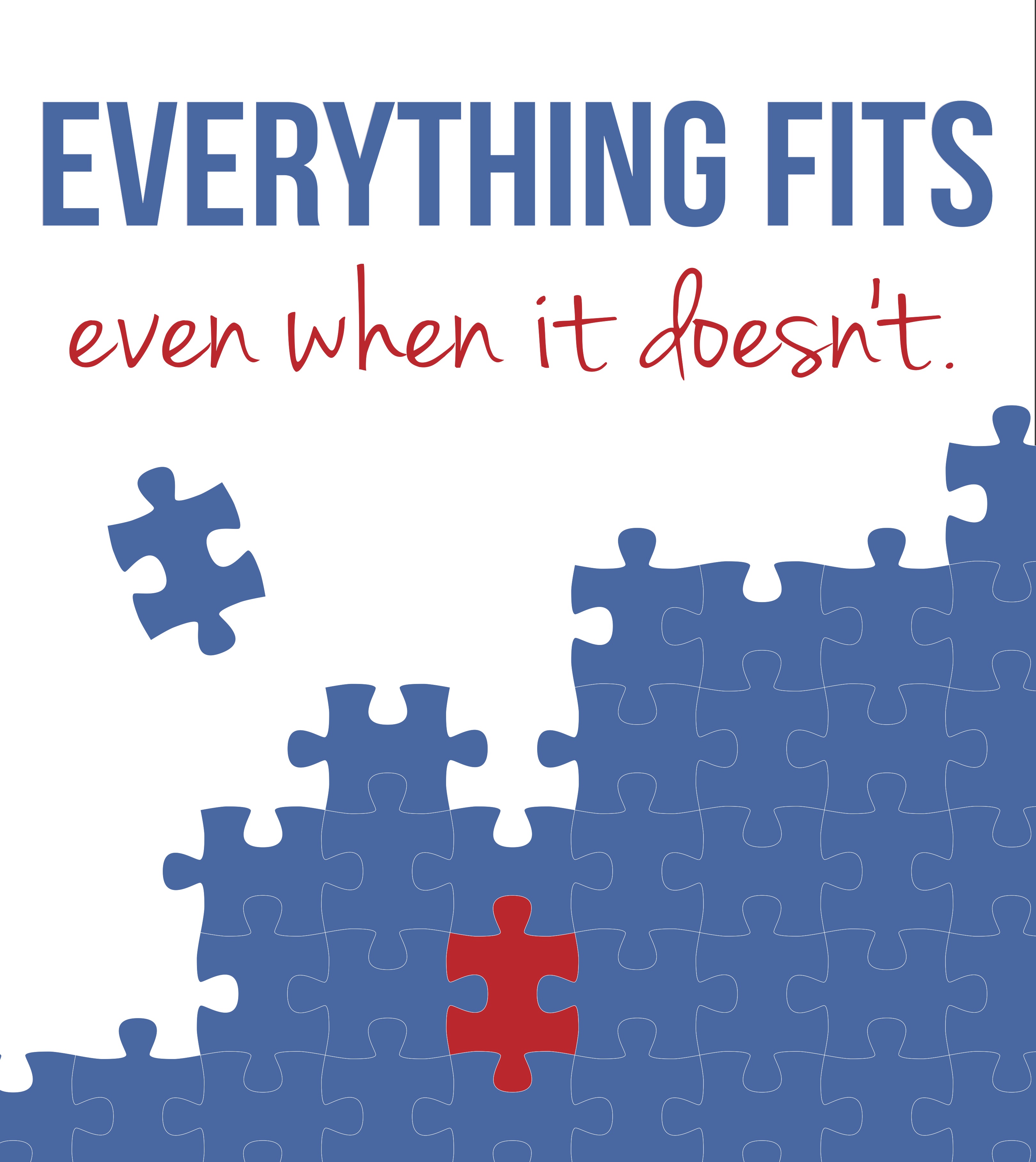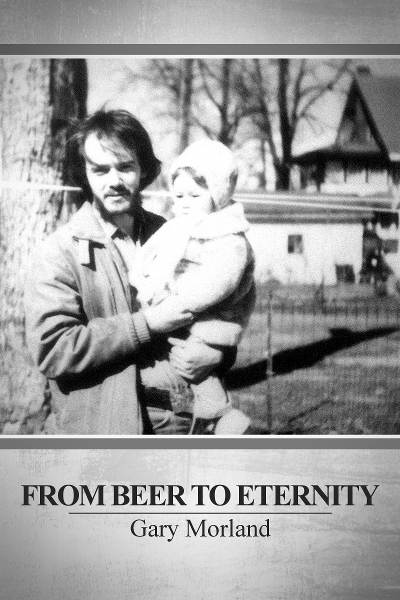During my forty year journey of discovering what makes families happy, I’ve learned two things that are normal and true about all of us. And I’ve learned these two things drive a big part of why we say what we say and do what we do:
- Everybody wants to feel good about themselves, and look good to others.
- Everybody likes grace, patience, and encouragement.
I’ve learned the Lost Tools are designed to take advantage of our drive to feel good and look good. Why? Because they’re full of grace, patience, and encouragement. Every human is designed to respond positively to their use. For those in your immediate home or your extended family, the Lost Tools are good for everyone.
Why are they ‘lost?’
They’re lost to the extent that we don’t use them. Maybe we can nod our head yes when we see or hear them, but we forgot them, or we don’t believe they’ll do what they’re designed to do, so we ignore them. They’re lost.
We’re only listing the tools here, to remind us of what they are. The articles, the blog posts, and any courses and downloads you find here are my effort to help you implement them for the sake of you and your family relationships. This list isn’t definitive; you probably know other tools. Just remember it doesn’t do any good to only know them – if they’re not used, they’re lost.
Of course they all come from that ancient book that’s alive today, the most popular book in the world that few people read and even fewer people follow. So, in a sense, that book is lost, too.
Found
HOWEVER, if you’re one of the ones who does read that book, and does follow it, and it’s not lost to you, then these tools will be very familiar to you, and as you increase your use of them, they will be rediscovered by you, as they are being rediscovered by me and my family.
They are guaranteed to work. This doesn’t mean they solve all relationship problems. But they are guaranteed to make things better, not worse. They’re designed for God to accomplish his purposes for good, even in what we call problems.
The more tools you use, the better your family relationships will be, even with the problems. These are the pieces intended to work together and reinforce each other as a whole lifestyle, but even using just a few will make a difference.
These are the tools I’m rediscovering, and I’d love for you to rediscover them along with me.
THE LOST TOOLS OF FAMILY PEACE
Woo Their Hearts
There’s the easy, everybody-does-it way that never seems to work: tell ‘em what they’re doing wrong. Then there’s the harder, risky way that takes longer but brings true satisfaction: woo their hearts.
Scolding and criticizing is a family relational default for all of us – I automatically do it. It’s the ‘That’s not right, here’s how to do it’ mentality. I may not say that, but it feels like that to others.
Wooing is an invitation that leaves people free to accept or reject. Wooing is the ‘could’ to scolding’s ‘should.’ Of course, there’s a place for scolding and criticizing – but it’s way less than what I used to think.
The power of wooing is in its non-agenda, in the feeling to others that when I woo, I have nothing personally at stake in anyone’s response. It gives people permission to to focus on what’s in their own best interest, not mine.
Wooing more and scolding less has been a fundamental shift in how I think and what I do (see the encouragement rule of 5X).
All the lost tools add up to wooing – the more tools you use, the more you woo.
Get Your Peace Right
Everybody wants to feel good about themselves, and look good to others. It’s built into us. This is designed to push us to Jesus for our feel good and look good, so that we experience his sufficiency for every need, want, problem, fear, disappointment, ambition, confusion, loss, comfort, pain. We’re designed get our inner peace and affirmation from the sufficiency and love of Jesus. This give us a bottomless reservoir from which to serve and be generous.
This Lost Tool says I’m not to look to my family as the source of inner peace and affirmation that only Jesus can give. I’m not to need my family to treat me a certain way in order for me to be at peace.
This is the core of my usefulness and influence in my family. Needing certain reactions from my family leads to manipulation to get my needs met instead of being available to meet theirs. I can’t meet their needs and my own at the same time. I have to pick.
Accept Your Family and Each Member Unconditionally
No PBA – ‘Performance-Based Acceptance.’
Acceptance says, “I love you no matter what. I accept you despite that thing you want to hide. You can’t shock me or drive me away. I’m here to stay.”
Loving them unconditionally does not mean I love and accept all their conduct. Jesus did not condemn or reject the woman caught in adultery, but he did say, “Go and sin no more.”
Acceptance and grace for the real you from someone you love is powerful and liberating – you want that, right? That’s what they want, too.
I’m to accept both my positive and negative feelings towards them as normal. Mixed emotions, at the same time, are natural – it’s called ambivalence, and means not going back and forth between positive and negative conclusions. This is how God sees us. He does not go back and forth between loving and hating. He loves us even knowing all that about us that deserves hate.
Each is an individual on their own personal journey and accountable to God. God is not finished yet, with them or with me. Our journey is tough enough without rejection and conditional love from the ones closest to us. This is a miraculous human offering that goes deep into souls.
I want to accept my family as they are, not as I wish they were.
Accept Your Role and Your Limits
My role is to influence not dictate.
I’ve been placed in my family by God for Him to influence my family through me. Yes, they’ve got the same purpose of influence with me, but I only control me.
I’m limited in that I can’t make anyone do anything, so I don’t want to act don’t like I expect to. I only control me, not them. Model more than tell – that’s what Jesus did. Take the initiative to influence for good no matter what others do.
When you move in the direction of accepting your family unconditionally, and in the direction of accepting your role to model what you want to see, you’re walking with Jesus. This is his direction. He’s with you.
So we want to take responsibility for our influence, but free ourselves from the responsibility for results.
Be Genuinely Curious and Give Attention
When someone is genuinely interested in you, don’t you feel honored? Curiosity is the opposite of indifference.
When you feel accepted and honored, you calm down and your self-protective exterior softens. How does a calm, soft, unselfish family sound to you?
So, I want to listen with no agenda other than wanting to know and understand them. We all have a sixth sense that tells us if someone is truly interested, or if they’re faking it or looking for ‘evidence’ to catch us or judge us.
Genuine curiosity and attention conveys the message that they must be valuable and worth listening to, and that you believe your curiosity is going to be satisfied by discovering something worthy from them.
This causes people to feel honored, valued, loved, and to calm down, relax, and grow soft. Then you can hear their heartbeat and gradually learn what God is up to with them, and catch a glimpse of God’s vision for them. They’ll feel loved, and you’ll see what God is doing.
We all love having someone who cares enough to commit to cooperating with what God is up to in us, and your family would love to have the same thing – and they do: you.
Be the caring gift they long for.
Make Sure You Hear and Are Heard
Remember when you were a kid and how it felt when one of your parents (or both) thought you were guilty of something you didn’t do, just because on the surface you looked guilty? And you said they just didn’t ‘understand?’ That’s this.
I’m always tempted to assume I understand what they’re thinking or why they do what they do. I’m learning to own it that I might be wrong.
And I’m realizing they might not understand what I mean or why I do what I do. I have to own the responsibility to be clear. (I know, it seems no matter who’s at fault, we’re supposed to take responsibility and initiative to make it right – must be part of the privilege of belonging to Jesus :))
It’s natural and tempting to judge how a person or circumstance seems in the first few moments, just from my own experience. I ignore that my experience might be incomplete, or that there could be many other dots to connect. Then I come to incomplete or incorrect conclusions about them. Then I treat them as if my conclusions are correct. And I never second guess myself.
Let’s always assume there’s more to the story. While we’ll never be able to know all of it, we can learn far more than what’s on the surface. Then I want to gently take the initiative to converse, ask, listen, discover.
I want to try to make sure I understand them, and that they understand me. There’s an art to this, and this art is great training in patience and grace.
Embrace God’s Vision For Them, Not Your Vision
It’s easy to assume that my opinion of who someone else should be and what they should do, is right, but in reality it’s hard to even know what’s best for my own self.
Of course this means I need to have a clue of God’s vision for them, which ties in with being patient, curious, and giving attention.
How do I get clues of God’s vision for them? When I accept them, and I’m patient, curious, and give attention, I start to hear what God has put inside them. When I try to understand them, I go deeper into the sacred ground of God’s vision for them. I’ll never get all the way, but I will see far more than my own surface assumptions of what’s best for them.
Be God’s Access to Your Family
I’m to let God get to them thru me, and not be a blockage. Needing my family to meet my needs for feeling good and looking good is a blockage.
You and I have been placed in our family for God to influence our family through us. It’s not so much our influence as it is Gods, through our presence. Then we cooperate with what we see him up to in our family, which ties in with embracing God’s vision.
When you’re patient and curious, and you give attention, you begin to see inside the soul and see what God is up to in that person. You learn who they are and how they feel and why they do what they do. You hear their heartbeat. You then have the awesome honor of cooperating with God in what he’s doing in this person you love.
Can you see yourself as God’s hidden treasure in your family to influence those you love towards the things God has in mind?
Encourage – The Rule of 5X
When someone gives you several compliments, and then mentions one negative thing about you, maybe a correction or criticism, what do you go away thinking about? What do you followup on? “Hey, thanks for the kind words, but let’s go back to that ‘could’ve been better’ part, what did you mean by that?” Right?
No one ever says they get too much encouragement. There’s an internal default in each of us that says receiving criticism weighs far more than receiving encouragement.
Research says you need to encourage 5X more than you criticize and correct, just for the person to feel the encouragement is equal to the criticism. So even when you encourage 5X more than you criticize, people don’t feel it – it feels neutral to them.
When you feel you’re going overboard with criticism, you’re probably still not going far enough. They’re not hearing it the way you mean it.
We all have the secret superpower ability to energize and inspire through encouragement. It gives people much needed confidence, and helps them be all they can be.
Reject Passivity in Relationships and Situations
I’m naturally passive in things requiring purposeful engagement. Not good. I’m not to avoid issues, short- or long-term. Things rarely get better naturally on their own.
When people are left to decide for themselves what something means, they almost always come to a negative conclusion. I’m supposed to take the initiative for asking questions and ensuring understanding.
I’m not to just let things go, but to engage people and issues, and handle them with grace, patience, and confidence. I’m to accept responsibility for my role of influence. That doesn’t have to mean confront, it just means be aware and sensitive to what to do next.
Model What You Want to See
I’m to model rather than tell, speechify, or scold, not only in attitudes and behavior, but also as an example of embracing the Lost Tools.
Telling people what to do and how to do it is a default in most of us. It comes easily and naturally. But modeling takes humility and is more difficult – I’m actually doing the attitude or behavior myself, in front of others, and they can see how it’s done.
“Be the change you want to see” is true.
This is how Jesus did it.
Show them what it looks like in your life as you live, and watch it become contagious.
Be a Safe Place to Launch and a Soft Place to Crash Land
Family is most satisfying when it’s a safe place to launch (with encouragement and rooting for each other), and a soft place to land (with learning to handle failure and disappointment with no shame or condemnation).
Family is designed to be a place of honest vulnerability without rejection. Disagreements without anger. Foolish mistakes without embarrassment. The place where they know you best yet love you most.
I can control how I respond to the crazy stuff. I don’t have to make things worse.
I can be an example of a soft attitude when offended or hurt.
I can be unshockable, but be shockingly graceful. I can show that I believe this family place is safe by being vulnerable myself. Grace and vulnerability are contagious.
Don’t Keep Score
No one keeps score of when they’ve been wrong or when they’ve offended someone.
We only keep score when others are wrong and offend us. We keep score of their bad and our good, so of course we think we always win.
Since we like to keep score, here’s a radical score I could keep: Whoever experiences the most unfairness, wins!
I could be a ruthless competitor in this. I can make sure I err on the side of too much grace and generosity.
I can never be taken advantage of if my goal is to out-give and out-generous everyone else. At any point where things are unfair and to my ‘detriment,’ I win, since that’s what I want!
To win, you must out-generous and out-grace the others. If someone else experiences more unfairness, you have to fix it by making it more fair to them and less to you.
I want to trust that this one thing – in humility refusing to keep score – will kill the seed of bitterness and create a growing garden of grace in my family.
Be Unoffendable
This is only possible through getting my peace right, and being in a place where no one can hold back or take anything of value from me, because my peace and value are in the never-ending love and sufficiency of Jesus. Therefore it’s almost impossible for me to be harmed or wronged.
When I get my feel good and my look good from Jesus, I have nothing to lose and so can’t get hurt and be offended.
This also ties in with accepting others with no PBA, and releasing everything to God.
This makes you easy to be around, easy to talk to, easy to connect with, calms things down, keeps things from getting worse, and is contagious.
Togethering – Do Things Together For Others
Helping others, or volunteering, is proven to be the #1 practical thing to make people happy – so when I do it with someone in my family and it bonds us together in happiness.
People will feel better and more valuable. And it works on relationships without working on relationships.
If I can do this outdoors, that’s even better – being outdoors is another thing that makes people happy. To be outside with my family as I help someone means the bonding and happiness is multiplied.
It’s great to do anything together as a family, but helping someone together as family has the most beneficial affect. This works with your family together as a whole, or as individuals.
Sprinkle Drops of Grace
Small touches add up. Words, actions, favors, send a message of love and value. When it’s unexpected and more than deserved, it creates more value.
I’m confident that when I’m are generous I am cooperating and trusting a great law of creation that is built into humans – God has wired us to be sensitive to generosity so that we might be sensitive to his generosity to us in Christ.
Generosity is part of God’s image and he has stamped us with his image. The image is corrupted by the fall and we’re all now naturally selfish, but the seed and echo of generosity remains. You can water the seed with a little generosity to get it to grow.
Little practical touches over time create ripples that can become waves and eventually a tide.
When I find ways to root for them and be their biggest fan, it becomes contagious.
Release the Results, the Other Person, and Your Role and Limits Into God’s Hands
He loves more, cares more, and wants better for them than I do. I’m realizing more and more the great power that comes from a peaceful attitude of trust. The burden of making things happen is on the Lord, while we get the privilege of cooperating with him and watching what he does.
He knows them and me and the situation better than I do.
He can do anything he wants and can be trusted to make it good.
Keep a light heart and watch it spread over time.
—-
What do you think? We’d love to join you on the journey of rediscovering The Lost Tools for your family.
JUST LEAVE YOUR EMAIL. It stays totally private, promise, and you’ll get the FREE Ten Minute Guide to a Fun Vision Day Your Family Will Love to Repeat Year After Year – it’s the same vision day our family has enjoyed for over ten years to help us connect with and root for each other.









